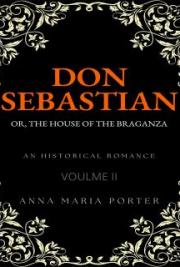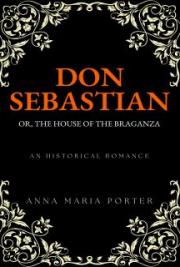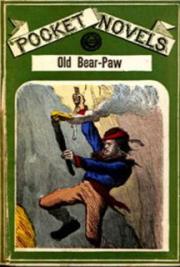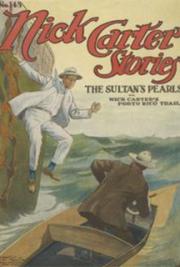SHAKESPEARE AND SHAW
SHAW’S notion that Shakespeare’s plays—or, at least, some of them—have been left behind by the evolution of popular philosophy and ideals is scarcely original with him. As he himself points out, the Bard of Avon has been burned in hot critical fire for many years, despite the “Shakespeare fanciers” who hold him as a god. Some of his plays, says Shaw, were so far ahead of their time when they were first presented that it has taken 300 years of theater-goers to tire of the “long line of disgraceful farces, melodramas, and stage-pageants which actor-managers, from Garrick and Cibber to our own contemporaries, have hacked out of them,” and to understand performances of the texts as the poet wrote them. By the same token, those plays which Shakespeare himself “wrote down” to the level of his audience have grown archaic in sentiment and character. Dramas like “Anthony and Cleopatra,” says Shaw, will nevermore be written, “nor relished by men in whose philosophy guilt and innocence, and, consequently, revenge and idolatry, have no meaning. Such men must rewrite all the old plays in terms of their own philosophy....”
When this was published, as a preface to “Cæsar and Cleopatra,” in “Three Plays for Puritans,” there was a volcanic critical eruption, and ever since then the flames have roared about the ingenious Irishman. He has delivered lectures explaining his position, he has set forth his views, elaborately and carefully, in print, and his admirers have gone to his rescue—but a large party of Shakespeare worshipers insist on clinging to the belief that he has attempted to drag the bard from his pedestal and himself climb upon it. Recently, in London, he delivered a lecture designed to make clear his idea. Next morning the London morning papers printed amazingly confused reports of it, and to set himself right Shaw wrote a letter to the Daily News containing 12 assertions, which, like the 95 theses Luther nailed upon the church door at Wittenberg, he desired should make known the substance of his argument. Here they are:
“1. That the idolatry of Shakespeare which prevails now existed in his own time, and got on the nerve of Ben Jonson.
“2. That Shakespeare was not an illiterate poaching laborer who came up to London to be a horseboy, but a gentleman with all the social pretensions of our higher bourgeoisie.
“3. That Shakespeare, when he became an actor, was not a rogue and a vagabond, but a member and part proprietor of a regular company, using, by permission, a nobleman’s name as its patron, and holding itself as exclusively above the casual barnstormer as a Harley Street consultant holds himself above a man with a sarsaparilla stall.
“4. That Shakespeare’s aim in business was to make money enough to acquire land in Stratford, and to retire as a country gentleman with a coat of arms and a good standing in the county; and that this was not the ambition of a parvenu, but the natural course for a member of the highly respectable, though temporarily impecunious, family of the Shakespeares.
“5. That Shakespeare found that the only thing that paid in the theater was romantic nonsense, and that when he was forced by this to produce one of the most effective samples of romantic nonsense in existence—a feat which he performed easily and well—he publicly disclaimed any responsibility for its pleasant and cheap falsehood by borrowing the story and throwing it in the face of the public with the phrase ‘As You Like It.’
“6. That when Shakespeare used that phrase he meant exactly what he said, and that the phrase ‘What You Will,’ which he applied to ‘Twelfth Night,’ meaning ‘Call it what you please,’ is not, in Shakespearean or any other English, the equivalent of the perfectly unambiguous and penetratingly simple phrase ‘As You Like It.’
“7. That Shakespeare tried to make the public accept real studies of life and character in—for instance—‘Measure for Measure’ and ‘All’s Well That Ends Well’; and that the public would not have them, and remains of the same mind still, preferring a fantastic sugar doll, like Rosalind, to such serious and dignified studies of women as Isabella and Helena.
“8. That the people who spoil paper and waste ink by describing Rosalind as a perfect type of womanhood are the descendants of the same blockheads whom Shakespeare, with the coat of arms and the lands in Warwickshire in view, had to please when he wrote plays as they liked them.
“9. Not, as has been erroneously stated, that I could write a better play than ‘As You Like It,’ but that I actually have written much better ones, and in fact, never wrote anything, and never intend to write anything, half so bad in matter. (In manner and art nobody can write better than Shakespeare, because, carelessness apart, he did the thing as well as it can be done within the limits of human faculty.)
“10. That to anyone with the requisite ear and command of words, blank verse, written under the amazingly loose conditions which Shakespeare claimed, with full liberty to use all sorts of words, colloquial, technical, rhetorical, and even obscurely technical, to indulge in the most far-fetched ellipses, and to impress ignorant people with every possible extremity of fantasy and affectation, is the easiest of all known modes of literary expression, and that this is why whole oceans of dull bombast and drivel have been emptied on the head of England since Shakespeare’s time in this form by people who could not have written ‘Box and Cox’ to save their lives. Also (this on being challenged) that I can write blank verse myself more swiftly than prose, and that, too, of full Elizabethan quality plus the Shakespearian sense of the absurdity of it as expressed in the lines of Ancient Pistol. What is more, that I have done it, published it, and had it performed on the stage with huge applause.
“11. That Shakespeare’s power lies in his enormous command of word music, which gives fascination to his most blackguardly repartees and sublimity to his hollowest platitudes.
“12. That Shakespeare’s weakness lies in his complete deficiency in that highest sphere of thought, in which poetry embraces religion, philosophy, morality, and the bearing of these on communities, which is sociology. That his characters have no religion, no politics, no conscience, no hope, no convictions of any sort. That there are, as Ruskin pointed out, no heroes in Shakespeare. That his test of the worth of life is the vulgar hedonic test and that since life cannot be justified by this or any other external test, Shakespeare comes out of his reflective period a vulgar pessimist, oppressed with a logical demonstration that life is not worth living, and only surpassing Thackeray in respect to being fertile enough, instead of repeating ‘Vanitas vanitatum’ at second hand to work the futile doctrine differently and better in such passages as ‘Out, out, brief candle.’”
These twelve articles merely serve to arouse a new storm of discussion and Shaw profited much thereby in the advertising it gave him. In May, 1905, the controversy had reached such a height that J. B. Fagan, a young English dramatist, wrote a burlesque about it. The piece was called “Shakespeare vs. Shaw” and was presented at the Haymarket Theater, London. The scene of the one act was a courtroom, in which the case between the two playwrights was being tried. James Welsh, Miss Winifred Emery, Cyril Maude, and other prominent players were in the cast and the little revue evidently made a fair success. At all events, its presentation was a rather significant thing. Few dramatists, in their lifetimes, see plays written about them.
THE END







